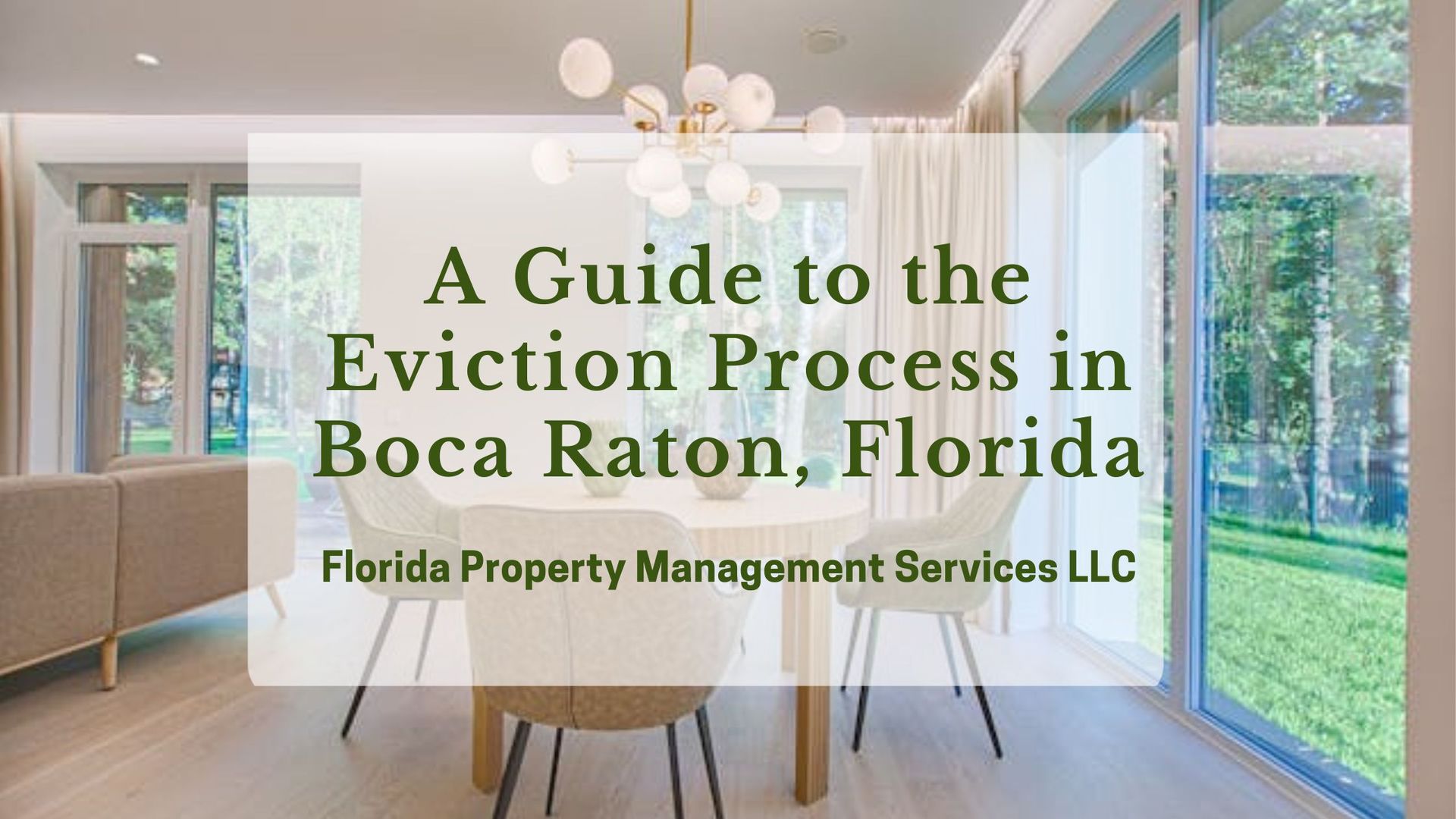BLOG

In the world of property management, insurance is one of the critical elements that ensure both the landlord’s and the property management company's protection from potential risks and liabilities. One of the common practices in property management is for the management company to be named as an "additional insured" on the landlord’s liability insurance policy. But what exactly does this mean, and what requirements must be met for a property management company to be added as an additional insured? This blog will delve into what it means to be an additional insured, the benefits and coverages it provides, and the steps involved for a property management company to be included in a landlord’s liability insurance. What is an Additional Insured? An "additional insured" is a person or entity that is covered under someone else's insurance policy. In the context of property management, this means that the property management company is protected under the landlord's insurance policy in case of claims or lawsuits related to the management of the property. By being named as an additional insured, the property management company receives many of the same protections as the landlord, particularly when it comes to liability claims. For instance, if a tenant or visitor is injured on the property and decides to file a lawsuit, both the landlord and the property management company could be named in the lawsuit. If the property management company is listed as an additional insured, the insurance policy will provide coverage for both parties in defending against the claim, thus reducing the property manager’s potential exposure to financial loss. Why Should a Property Management Company Be Added as Additional Insured? Adding a property management company as an additional insured is a common industry practice and offers several advantages for both landlords and property managers. Protection Against Liability Claims: One of the primary reasons to add a property management company as an additional insured is to protect them from potential liability claims. Since property managers are responsible for handling various aspects of the property, from repairs and maintenance to tenant relations, they are at risk of being named in lawsuits. As an additional insured, the property management company is shielded from these risks and can rely on the landlord’s insurance policy to handle claims related to their activities. Risk Mitigation: Having a property management company named as an additional insured helps mitigate risks for both the landlord and the property manager. It ensures that there is adequate coverage for potential claims that could arise from the property’s day-to-day management. This reduces the likelihood of disputes between landlords and property managers over who is liable for a particular claim, streamlining the process for addressing legal matters. Cost Savings: If a property management company is added as an additional insured, they do not need to carry separate liability insurance for that specific property. This can result in cost savings for the management company, which can be passed on to landlords in the form of reduced management fees. Of course, property management companies must carry their own general liability and professional liability insurance policies but being named as additional insured on a landlord's liability policy avoids the need of carrying a liability policy for that specific property which results in savings of operating costs and therefore provides the abiity for the management company to pass on those savings to the landlord in the form of lower management fees. What Coverages are Provided When a Property Management Company is Named as Additional Insured? When a property management company is added as an additional insured, they receive coverage for a wide range of potential claims and liabilities, including: General Liability Coverage: This is the core coverage that a property management company benefits from as an additional insured. General liability insurance covers bodily injury and property damage that occurs on the rental property. For example, if a tenant trips and falls due to a poorly maintained stairway, and both the landlord and property management company are sued, the insurance policy will cover the costs of defending the lawsuit, as well as any potential settlements or judgments. Property Damage Claims : If damage occurs to a tenant’s property or personal belongings due to the negligence of the property manager (for instance, a leak that was not promptly repaired), the additional insured coverage can protect the management company from liability. Legal Defense Costs: In the event that a property management company is sued, the insurance policy will cover legal defense costs, including attorney fees, court costs, and any other related expenses. This is particularly important as legal fees can quickly add up, even if the property manager is ultimately not found liable. Errors and Omissions (E&O): In most cases E&O coverage is provided as a separate liability policy that is obtained by the property management company at no cost to the landlord Requirements for Adding a Property Management Company as Additional Insured For a property management company to be added as an additional insured, several steps and requirements need to be met: Landlord Consent: The landlord must first agree to include the property management company as an additional insured on their insurance policy. This is typically negotiated as part of the property management agreement. It is in the best interest of both parties, as it ensures comprehensive coverage for any incidents that occur on the property. Endorsement: Adding a property management company as an additional insured usually requires an endorsement to be added to the landlord’s existing policy. This endorsement officially extends the coverage to include the management company. The landlord must request this endorsement from their insurance provider, and there may be a small fee associated with adding it. Policy Limits and Coverage Types: It is essential that the landlord’s policy has adequate limits and the right types of coverage. Property management companies should ensure that the policy includes sufficient general liability coverage, as well as coverage for property damage, bodily injury, and other risks specific to the management of rental properties. Verification and Documentation: Once the property management company is added as an additional insured, it is important to obtain a certificate of insurance (COI) from the landlord’s insurance provider. This document serves as proof that the management company is covered and can be kept on file for reference. Property managers should periodically verify that the coverage remains active and up-to-date, particularly when policies are renewed or if the landlord changes insurers. Adding a property management company as an additional insured on a landlord’s liability insurance policy is a crucial step in mitigating risks and ensuring comprehensive protection for both parties. By understanding what additional insured status means, what coverages it provides, and the steps involved in obtaining this coverage, property management companies can better protect themselves from potential liabilities and provide landlords with greater peace of mind. For landlords, including their property management company as an additional insured is a relatively simple process that can prevent costly legal battles and ensure seamless management of their rental properties. As with all aspects of property management, clear communication and well-defined agreements are key to protecting both parties and ensuring the long-term success of the property management relationship.

Choosing the right tenant for your rental property is one of the most critical decisions you will make as a landlord. A good tenant can ensure a steady income stream, maintain the property’s condition, and create a positive living environment, reducing the risk of costly repairs and legal disputes. On the other hand, a poorly chosen tenant can lead to frequent late payments, property damage, and a host of other issues that can make your life as a landlord much more difficult. To help you navigate this crucial process, here’s an in-depth guide on how to select the best tenant for your rental property. 1. Conduct a Thorough Screening Process The cornerstone of selecting the right tenant lies in a meticulous screening process. This process should begin with a comprehensive background check. A background check is crucial because it provides insight into the tenant's history, which can be a good predictor of future behavior. This check should include: Credit Check: A tenant’s credit report is a strong indicator of their financial responsibility. It reveals how well they manage their finances, whether they have a history of paying bills on time, and any significant debts they might be carrying. A higher credit score generally indicates that the tenant is reliable in meeting financial obligations. Criminal Background Check: Ensuring the safety of your property and other tenants is paramount. A criminal background check will help you identify any red flags, such as past convictions that might suggest a higher risk of property damage or issues with other tenants. While not all criminal histories should automatically disqualify a potential tenant, it’s important to weigh the nature and severity of any offenses. Eviction History Check: Checking a tenant’s eviction history can provide valuable insights. If a potential tenant has been evicted in the past, it’s crucial to understand the circumstances. Frequent evictions are a red flag and might indicate a pattern of non-payment or lease violations. Employment Verification: Verifying the tenant’s employment is essential to ensure they have a steady income source. Contacting their employer can confirm not only their job status but also their length of employment, which can be a good indicator of stability. Income Verification: Ideally, the tenant’s monthly income should be at least three times the rent amount. This ratio helps ensure that they can afford to pay rent consistently. You can verify this by requesting recent pay stubs, bank statements, or a letter of employment. 2. Assess Financial Stability Financial stability is one of the most critical factors in tenant selection. Even if a tenant has a clean background, if they do not have the financial means to pay rent consistently, they may not be the right fit for your property. Here’s what to consider: Income-to-Rent Ratio: As mentioned earlier, the tenant’s income should ideally be three times the rent. This ratio provides a buffer for the tenant’s other financial obligations and helps reduce the risk of late payments. Savings and Financial Reserves: Tenants with some savings or financial reserves are often better equipped to handle unexpected expenses without defaulting on rent. This information might not always be available, but if a tenant voluntarily shares it, it can be a good sign of financial prudence. Debt-to-Income Ratio: A tenant may have a high income, but if they are also burdened with significant debt, their ability to pay rent consistently could be compromised. Reviewing their debt-to-income ratio can provide a more complete picture of their financial situation. 3. Check References from Previous Landlords References from previous landlords are one of the most valuable tools in your tenant selection arsenal. These references can provide firsthand insights into the tenant’s rental history and behavior. Here’s how to effectively use landlord references: Rent Payment History: Ask previous landlords whether the tenant paid rent on time and if there were any issues with late payments. Consistent on-time payments are a strong indicator of a reliable tenant. Property Maintenance: Inquire about how well the tenant maintained the property. Did they leave the property in good condition? Were there any damages beyond normal wear and tear? A tenant who takes care of the property is less likely to cause expensive damage. Lease Compliance: Did the tenant comply with the terms of the lease? Ask about any issues related to noise complaints, unauthorized occupants, or other lease violations. A tenant who respects the lease terms is likely to be easier to manage. Reason for Moving: Understanding why the tenant is moving can also be telling. Are they relocating for a job, or are they leaving because of unresolved disputes with the previous landlord? The reason for moving can provide context to their application. Verify you are talking to the right person, the actual landlord or agent and that he/she is not trying to get rid of a bad tenant 4. Evaluate Personal Traits and Compatibility While financial stability and a clean rental history are crucial, the tenant’s personal traits also play a significant role. You want to find a tenant who will not only pay rent on time but also be a responsible and respectful neighbor. Here’s what to consider: Communication Skills: Good communication is key to a successful landlord-tenant relationship. Evaluate how responsive and clear the tenant is in their communications during the application process. A tenant who communicates well is likely to report maintenance issues promptly and adhere to lease terms. Respect for Property and Neighbors: Consider the tenant’s attitude toward property maintenance and neighborly behavior. A tenant who shows respect for their living environment and others is likely to be a positive presence in your property. Stability and Longevity: If you’re looking for a long-term tenant, consider their stability. Do they have a stable job or family ties in the area? Tenants who are likely to stay long-term reduce turnover costs and the stress of frequent tenant changes. 5. Trust Your Instincts, But Stay Within Legal Boundaries As a landlord, it’s important to trust your instincts when evaluating potential tenants. If something feels off, it’s worth taking the time to investigate further. However, it’s equally important to ensure that your decision-making process complies with Fair Housing Laws. These laws prohibit discrimination based on race, color, national origin, religion, sex, familial status, or disability. Make sure your criteria are consistent for all applicants and based on legitimate business reasons. 6. Set Clear Expectations Early On Before finalizing your decision, have a detailed conversation with the prospective tenant about your expectations. Discuss: Rent Payment: Clarify when rent is due, how it should be paid, and any late fees that apply. Maintenance Responsibilities: Outline what maintenance tasks the tenant is responsible for, such as yard work or changing air filters. Property Rules: Discuss any property-specific rules, such as noise restrictions, parking arrangements, and pet policies. Clear communication of expectations can prevent misunderstandings and conflicts down the road. It also gives the tenant an opportunity to ask questions and ensure they are comfortable with the terms. 7. Use a Comprehensive Lease Agreement A well-prepared lease agreement is essential to protecting both you and your tenant. The lease should cover all aspects of the tenancy, including: Rent and Deposit Details: Clearly state the rent amount, due date, and security deposit terms. Lease Duration: Specify the lease term and any renewal options. Maintenance and Repairs: Define who is responsible for routine maintenance and how repair requests should be handled. Rules and Regulations: Include any property rules, such as noise restrictions or pet policies. Termination Conditions: Outline the conditions under which the lease can be terminated by either party. Having a comprehensive lease agreement ensures that both parties understand their rights and responsibilities, reducing the potential for disputes. Selecting the right tenant is not just about filling a vacancy; it’s about finding someone who will respect your property, pay rent on time, and contribute positively to the community. By conducting thorough screening, assessing financial stability, checking references, and considering personal traits, you can significantly increase your chances of choosing the right tenant. Remember, a careful selection process is an investment in the long-term success and profitability of your rental property.

Investing in real estate has long been heralded as one of the most reliable and lucrative avenues for wealth accumulation and financial security. While there are myriad investment options available today, real estate stands out due to its unique advantages, potential for appreciation, and ability to generate steady income. This blog delves into the many benefits of real estate investment, with a particular emphasis on residential real estate and, more specifically, single-family rentals (SFRs). The Unique Advantages of Real Estate Investing 1. Tangible Asset Real estate is a tangible asset, providing a sense of security and stability that is often absent in stocks or bonds. Investors can physically see and touch their investment, which can be reassuring during times of market volatility. 2. Steady Income Stream One of the primary appeals of real estate is the potential for a steady income stream through rental income. Well-chosen properties in desirable locations can provide consistent cash flow, often exceeding initial investment expectations. 3. Appreciation Potential Real estate typically appreciates in value over time. While market fluctuations are inevitable, the long-term trend for real estate prices has been upward. This appreciation, combined with rental income, can significantly enhance an investor’s return on investment (ROI). 4. Leverage Opportunities Real estate allows for leveraging, where investors can use borrowed capital to increase the potential return of an investment. This means that with a relatively small initial investment (down payment), investors can own and control a much larger asset. 5. Tax Benefits Real estate investments come with several tax advantages. These can include deductions for mortgage interest, property depreciation, and operating expenses. Moreover, capital gains on real estate can be deferred through 1031 exchanges, further enhancing the tax efficiency of real estate investments. 6. Hedge Against Inflation Real estate acts as an effective hedge against inflation. As the cost of living rises, so do rental prices and property values. This ensures that the real value of the investment is maintained over time, preserving and potentially increasing the investor’s purchasing power. 7. Diversification Including real estate in an investment portfolio provides diversification, reducing overall risk. Real estate often behaves differently from stocks and bonds, and its inclusion can balance the performance of an investment portfolio, especially during market downturns. 8. Control Over Investment Unlike other investment avenues where the investor has little to no control over the performance, real estate offers a hands-on approach. Investors can make strategic decisions about property improvements, tenant selection, and rent pricing to optimize their returns. Types of Investments in Residential Real Estate 1. Single-Family Rentals (SFRs) Single-family rentals involve purchasing individual houses and renting them out to tenants. SFRs are particularly attractive to investors for several reasons: High Demand: Single-family homes are always in high demand, particularly among families looking for long-term rental options. Stable Tenants: Tenants in single-family homes tend to stay longer, reducing turnover rates and associated costs. Appreciation Potential: SFRs often appreciate faster than multi-family properties due to their desirability and limited supply. Ease of Financing: Mortgages for single-family homes are easier to obtain compared to multi-family or commercial properties. 2. Multi-Family Properties These include duplexes, triplexes, and apartment buildings. Multi-family properties can provide higher rental income due to multiple units but also come with higher management demands and potentially higher vacancy risks. 3. Condominiums Condos can be a cost-effective entry point into real estate investing, often requiring lower initial capital compared to single-family homes. However, they come with homeowners association (HOA) fees and rules, which can impact profitability and control. 4. Townhomes Townhomes offer a blend of single-family homes and condominiums. They often attract renters looking for a compromise between the two, providing good appreciation potential and stable rental income. Advantages of Single-Family Rentals 1. Strong Market Demand Single-family rentals cater to a broad demographic, including young families, professionals, and retirees. This wide appeal ensures a consistent demand, minimizing vacancy risks and ensuring stable rental income. 2. Greater Tenant Stability Tenants in single-family homes are often seeking long-term accommodation. Families, in particular, prefer stability for the sake of their children’s schooling and community ties. This stability reduces turnover rates and the associated costs of finding new tenants. 3. Easier Property Management Managing single-family homes can be less complex than managing multi-family properties. Each home is independent, reducing the likelihood of widespread maintenance issues and conflicts between tenants. 4. Higher Appreciation Rates Historically, single-family homes tend to appreciate more rapidly than other types of residential real estate. This is due to their appeal to both investors and owner-occupiers, driving demand and pushing up prices. 5. Financing Flexibility Financing options for single-family homes are more diverse and accessible. Investors can take advantage of conventional mortgages, FHA loans, and even VA loans in some cases, allowing for lower down payments and favorable interest rates. Maximizing Returns with Single-Family Rentals To maximize returns on single-family rentals, investors should focus on the following strategies: Location, Location, Location: Invest in areas with strong economic fundamentals, good schools, and low crime rates. These factors drive demand and ensure long-term appreciation. Thorough Tenant Screening: Implement a rigorous tenant screening process to ensure reliable, long-term tenants who will take good care of the property. Regular Maintenance: Proactive maintenance prevents small issues from becoming costly repairs, preserving property value and tenant satisfaction. Strategic Renovations: Invest in renovations that enhance the property’s value and appeal without overcapitalizing. Focus on kitchens, bathrooms, and curb appeal. Professional Management: Consider hiring a property management firm to handle day-to-day operations, tenant relations, and maintenance. This allows investors to focus on growing their portfolio while ensuring their properties are well-maintained. Real estate investment, particularly in single-family rentals, offers numerous advantages, from steady income and appreciation to tax benefits and diversification. By understanding the unique benefits and implementing strategic investment and management practices, investors can build a robust and profitable real estate portfolio. Whether you are a seasoned investor or just starting, the enduring appeal and stability of real estate make it a compelling choice for achieving long-term financial success.

















